16 November 2023

A new study from the Asari group at EMBL Rome shows a different retinal function in awake mice compared to isolated retinal samples. These new insights could help to develop prosthetic devices that can act as a retina in the future.
SCIENCE & TECHNOLOGY
2023
sciencescience-technology
9 March 2023
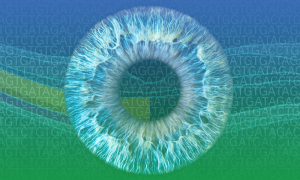
EMBL-EBI researchers use UK Biobank data to uncover new information about rare diseases of the eye.
2023
research-highlightsscience
21 April 2020
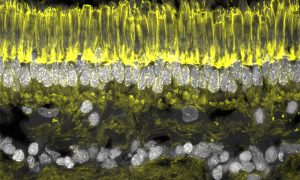
This Picture of the Week shows a stained cryosection of a retina – the light-sensitive part of the eye – of an ancient fish, the lamprey.
SCIENCE & TECHNOLOGY
2020
picture-of-the-weekscience-technology
1 October 2019
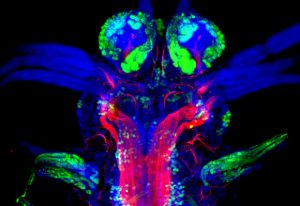
Model organisms are species that are studied extensively to understand particular biological phenomena and processes, with the expectation that discoveries made in the model organism will provide insight into the workings of other organisms. The small marine ringed worm Platynereis dumerilii gained…
SCIENCE & TECHNOLOGY
2019
picture-of-the-weekscience-technology
4 July 2010
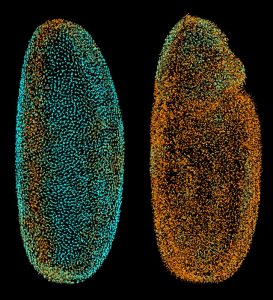
The scientists at the European Molecular Biology Laboratory (EMBL) in Heidelberg, Germany, who ‘fathered’ the Digital Embryo have now given it wings, creating the Fly Digital Embryo. In work published today in Nature Methods, they were able to capture fruit fly development on film, and were the…
SCIENCE & TECHNOLOGY
2010
sciencescience-technology
20 November 2008
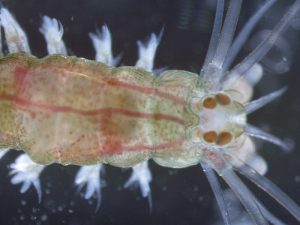
The best-selling novel The swarm captured the imagination of countless readers with the fascination of marine life. But it also showed how little we understand life in the depth of the ocean. Scientists at the European Molecular Biology Laboratory (EMBL) and the Max Planck Institute (MPI)…
SCIENCE & TECHNOLOGY
2008
sciencescience-technology
25 August 2006
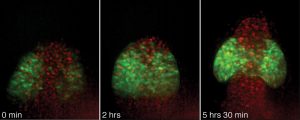
Eyes are among the earliest recognisable structures in an embryo; they start off as bulges on the sides of tube-shaped tissue that will eventually become the brain. Researchers from the European Molecular Biology Laboratory (EMBL) in Heidelberg have now discovered that cells are programmed to make…
SCIENCE & TECHNOLOGY
2006
sciencescience-technology






